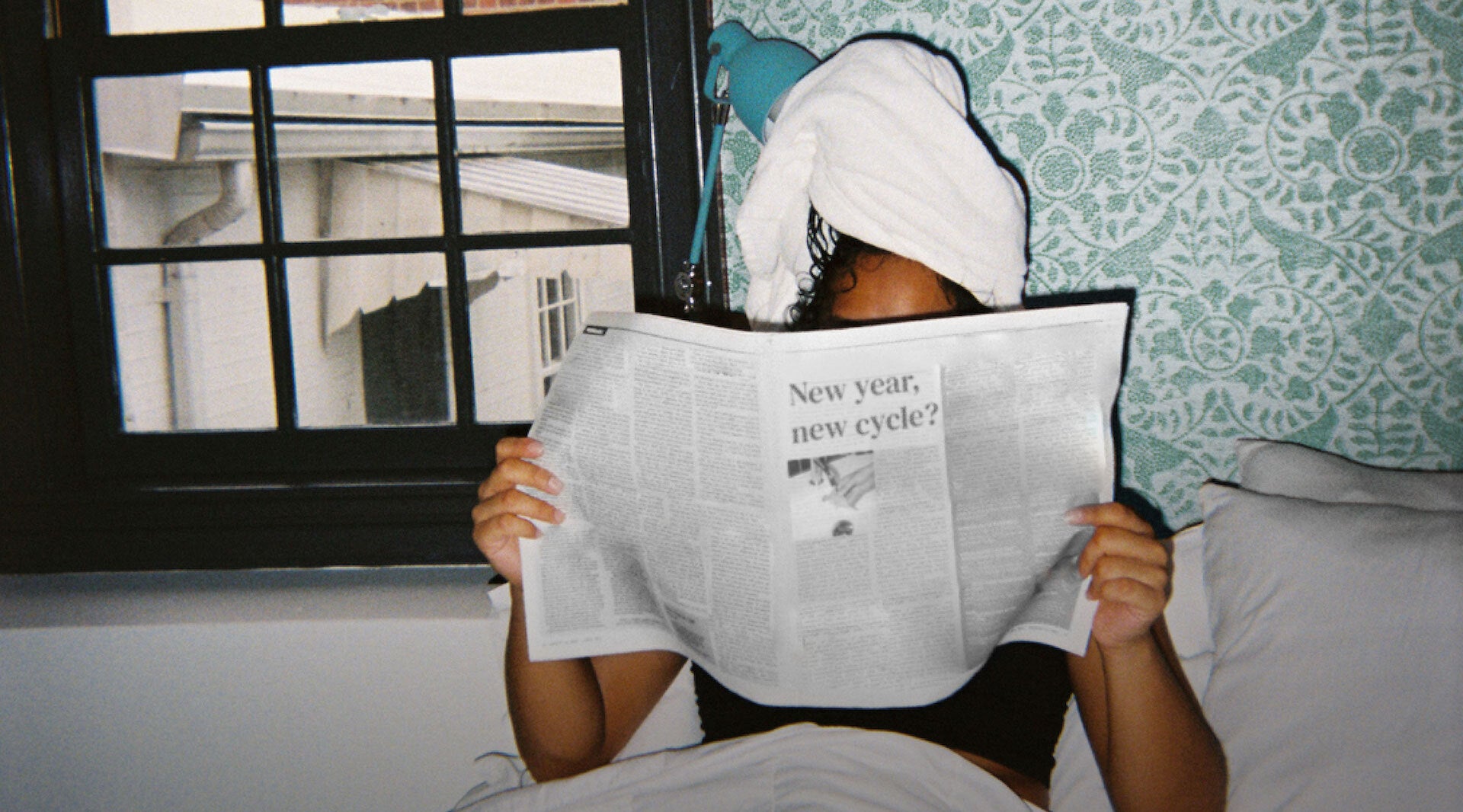Introducing Inspiring Sister Funmi Lijadu...
Funmi Lijadu is a writer and collage artist highlighting stories that are less heard. She is invested in humanity, the histories that led to our present, and imagining better futures. She attends the University of Edinburgh and is in her final year studying English Literature while pursuing her freelance career in journalism and art.
Your work revolves around intersectional social issues, often focusing on the racism black women face. What inspired you to take a stand on these issues and how do you think blackness impacts menstrual wellbeing?
I’m inspired to speak up about issues because I believe that the position of people that identify as women in today’s world is still unacceptable and frustrating. I have also witnessed what happens in countries with extreme wealth inequality. There are massive gaps in terms of access regarding black people that menstruate in countries with high levels of poverty, like Nigeria. These challenges where people are not able to get what they need means that working to address stigma is something that isn’t always prioritised beyond the urgent needs of marginalised people. Socio-economic factors experienced by some black women means that access to period products is not always straightforward. Also, many black women belong to cultures where there is stigma and tone-policing around menstruation which means that social policy, education and economic measures are what’s needed to maintain menstrual wellbeing for black women. Power, access and opportunity are complex issues and my work hopes to try to speak to that complexity. Girl power is not just cis-gendered, neurotypical, Western and white.
You were recently selected by the Tate collective to create something in response to pre-Raphaelite painter William Dyce’s Madonna and Child for Black History month. How did it feel to be selected for something so prestigious and how did you approach the assignment?

It was absolutely incredible to work on! I chose a personal angle for my submission, based on spirituality and my upbringing via Catholic imagery. I found it refreshing as black history month is so often wrapped up in popular examples of our trauma. I employed my imaginative collage practice to meditate on images and motifs that were familiar to me, transforming the Virgin Mary Madonna figure into a black woman. I’m very proud of the final artwork and feel like it captured a lot of my interests within the kitsch aesthetics of Catholicism. As I cut and pasted, I filmed an Instagram reel that documented the behind-the-scenes process.I was previously commissioned to make a collage for the Tate Collective Instagram page back in 2018 for Black History Month. That piece spoke to issues of belonging and identity in the Uk, inspired by the shocking alienation that my maternal grandmother navigated as a Windrush immigrant and connecting that to black identity and power struggles local to Nigeria.
One of the taboos we're committed to erasing is #periodshame. Have you ever experienced this?
I’ve definitely experienced period shame, and often from other women. I recall times where I unintentionally stained a chair or my clothes. Other girls would make a big deal out of it, and try to make me feel ashamed by calling me dirty or careless etc. I have a lot of compassion for myself because I don’t need to feel ashamed if my bodily functions become clear to others by mistake.
My #firstperiodstory was funny because when I was 12 years old I remember seeing a dark reddish-brown patch on my underwear when I used the bathroom. I ran into my parents bedroom and shouted to my mum ‘I think my period just happened!’. She reassured me that it was healthy and normal and gave me products to use. Later that day, I bled more and ran back distressed saying ‘mum I think it happened again!’ This time she laughed and said it doesn't all come out in one scary flood. At this point I calmed down and started laughing as well.
Here at &SISTERS we believe that, when we are united and supportive of one another, we can all do great things. Which Sisters do you admire and why?
I admire women in my family who passed on knowledge, storytelling and self-care rituals down to me. I’m also in awe of my friends and individuals I follow who do advocacy work in terms of climate, gender equality, intimate partner violence, mental wellbeing and other urgent issues. And everyone who is marginalised but chooses to be outspoken against the odds.
Finally, being a sister is a journey and one that teaches us many lessons in life. Looking back as a big sister now, if you could give younger Funmi some words of advice, what would you tell her?
First and foremost I would tell her that her body is normal! That it belongs to her before others impose judgement on it. And this judgement could be based on her desirability, how she is meant to censor herself and hide certain aspects of her womanhood to make others possible, and everything else. She is worthy on her own, outside of any validation or attention and her body is amazing and she needs to be attentive to the signals it sends to her instead of fixating on the words of others.
To explore more of Funmi's work, visit: artbyfunmi.
Blog disclaimer
Our blog is intended to share information and ideas around periods, health, and sustainability. While we do our best to keep content accurate and up to date, things can change over time. The information here is not intended as medical advice — for any health-related concerns, please consult a qualified healthcare professional. For more information on our claims, please see our Claims Page, and for the most up-to-date product information, please visit our Product Pages.





